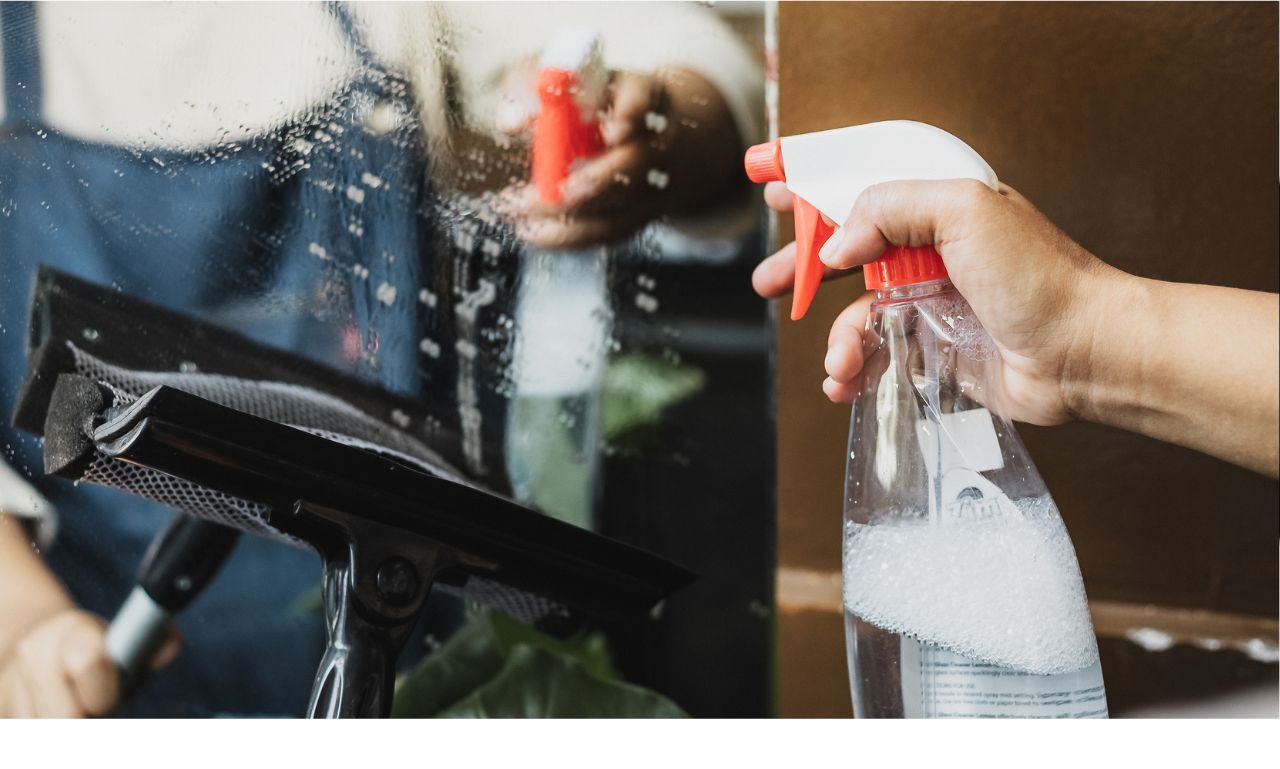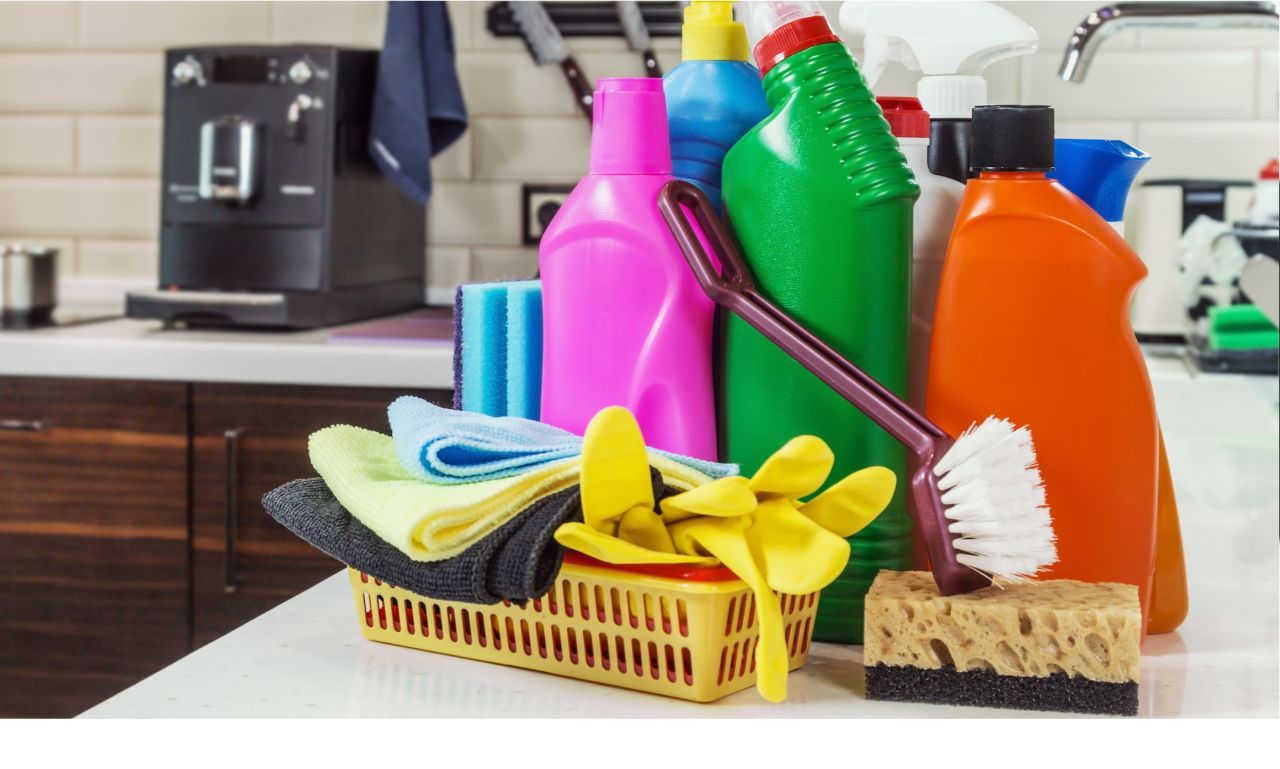Ever wonder how restaurants keep their floors spotless despite the hustle, spills, and chaos of a busy kitchen? The secret lies in powerful cleaning agents—sometimes even acid! But what acid does the restaurant use to clean the floors? Let's break down everything you need to know, from the types of cleaners used to the best practices for keeping those floors pristine and customer-ready.
Types of Cleaning Agents Used in Restaurants
Restaurant cleaning routines use different cleaning agents to tackle various types of stains and messes. It's all about choosing the right cleaner for the job.
Acidic Cleaners

When cleaning restaurant floors, acidic cleaners are often chosen for their ability to cut through tough stains and mineral deposits. But what acid does the restaurant use to clean the floors? Here are some common types:
- Hydrochloric Acid: A powerful acid often used to remove mineral deposits, tough stains, and inorganic matter. Hydrochloric acid is commonly found in commercial kitchens, particularly in deep cleaning processes where grease and stubborn residue must be eradicated.
- Phosphoric Acid: This acid is ideal for deep cleaning, especially in grout lines and high-traffic areas. It effectively dissolves hard water scales and mineral buildup, which makes it a key factor in keeping a clean floor in a busy restaurant environment. Phosphoric acid is gentle enough to use on tiles and porcelain surfaces but powerful enough to remove even the most stubborn deposits.
- High Acid Cleaners: Products like High Acid Cleaner FP® are explicitly designed for grease removal, which is common in commercial kitchens. These products are formulated to penetrate layers of built-up grease and break down organic residues that collect on kitchen floors over time.
Alkaline Cleaners
Alkaline cleaners also play an essential role in maintaining restaurant floors. They effectively break down organic matter, such as grease and food residues, which are major contributors to dirty floors in restaurant kitchens.
- Alkaline Degreaser: These are essential for dealing with heavy grease buildup in restaurant kitchens. The alkaline properties help dissolve stubborn organic stains, making washing away grease from tiles, grout lines, and floor mats easy. They work well in combination with hot water and a piece of equipment like a rotary scrubber to enhance their effectiveness.
- Chemical Degreaser: This cleaner works wonders on stainless steel surfaces, equipment, and tiles. Often paired with a grout brush or floor scrubber for maximum efficiency, chemical degreasers help remove the oily residues that accumulate in high-traffic areas and near kitchen equipment.
Neutral Cleaners
- Neutral pH Cleaners: Safe for everyday cleaning, these cleaners are gentle on tiles and safe to use on porcelain translucent and stainless steel surfaces. They are often part of routine maintenance to avoid build-up and maintain the polished look of the entire restaurant. Neutral cleaners are handy for keeping surfaces without causing damage or leaving behind harsh chemical residues.
The Importance of Floor Cleaning in Restaurants
A clean floor is about more than appearances—it's vital to safety, customer satisfaction, and regulatory compliance.
Hygiene and Safety Considerations
- Safe Environment: Maintaining a secure environment in a restaurant means keeping floors clean and dry to prevent slips, falls, and other accidents. Regular and deep cleaning helps ensure a safe environment, minimizing the risk of slips, falls, and cross-contamination. Using cleaning agents specifically designed to remove grease, food particles, and spills is key to reducing accidents in the kitchen and dining areas.
- Routine Maintenance: If left unclean, floors are breeding grounds for bacteria. Routine maintenance and using the right cleaning chemicals are critical for hygiene in food preparation areas and the dining space. Cleaning protocols should include regular cleaning schedules, ensuring that the right cleaners are used for the specific types of soils that accumulate.
Impact on Customer Experience
- First Impressions Matter: Dirty floors can turn away customers in an instant. A well-maintained floor communicates professionalism and attention to detail. Clean floors convey that the restaurant prioritizes cleanliness, not just in food preparation but throughout the dining experience. This can significantly impact a customer's impression and likelihood of returning.
- Customer Traffic: High-traffic areas can get dirty fast, especially during peak business hours. Consistent use of floor cleaning solutions and preventive maintenance tasks are necessary to maintain a good impression and prevent maintenance costs from spiraling out of control. Keeping floors clean in high-traffic areas also helps manage the wear and tear that occurs due to foot traffic.
Common Challenges in Restaurant Floor Cleaning

The environment in a restaurant kitchen presents unique cleaning challenges—from heavy grease to stubborn mineral deposits.
Grease Buildup
- Grease Removal: Grease is one of the major contributors to dirty floors in restaurant kitchens. The combination of oil splatters spilled food, and foot traffic creates a layer of grime that can be difficult to remove without the right chemicals. Using alkaline degreasers and acidic cleaners helps break down grease effectively.
- Hot Water and Degreasers: Hot water combined with a chemical degreaser can work wonders when paired with the right equipment, like a rotary scrubber. The heat from the water helps to soften the grease while the degreaser breaks it down, allowing for easy removal.
Protein Soils
- Soapy Water and Cleaning Supplies: Proteins from food spills require soapy water and elbow grease. A grout brush or floor scrubber is essential to tackle these effectively. Protein soils can be challenging because they stick to surfaces, requiring physical scrubbing to break them down.
- Routine Maintenance: Regular cleaning with a neutral cleaner can help prevent protein soils from becoming a significant problem. Establishing a preventive maintenance plan ensures that these spills are addressed promptly.
Mineral Deposits
- Phosphoric Acid and Grout Cleaner: Mineral deposits often accumulate in grout lines and around kitchen equipment due to hard water usage. Acidic cleaners, particularly phosphoric acid, can remove these effectively. Mineral deposits look unsightly and can harbor bacteria and create slip hazards if not adequately addressed.
- Grout Lines: Grout lines can be particularly challenging to clean because they tend to absorb dirt and grime. Using a specialized grout cleaner and a grout brush helps ensure that grout lines are thoroughly cleaned and sanitized.
Types of Acids Used in Floor Cleaning
Different acids have different roles, especially regarding restaurant floor cleaning. Let's examine some of the most commonly used acids.
High Acid Cleaners (e.g., High Acid Cleaner FP®)
- Usage: High acid cleaners like High Acid Cleaner FP® are ideal for deep cleaning in high-traffic areas and around heavy machinery. They are formulated to dissolve tough stains, mineral deposits, and inorganic matter that accumulate in commercial kitchens.
- Effectiveness: High acid cleaners dissolve mineral deposits and inorganic matter, making them ideal for areas with hard water stains. They are instrumental in places where buildup occurs frequently, such as grout lines, dishwashing machine tanks, and other areas exposed to hard water.
Organic Acids
- Citric Acid: This gentler acid is often used in less intense cleaning situations. It's great for maintaining cleanliness without harsh chemicals and is suitable for daily cleaning tasks where a less aggressive approach is needed.
- Acid Replacement Cleaner F-2002: This acid-free cleaning solution is an alternative for surfaces that need regular cleaning without the risks of corrosive chemicals. It is effective for maintaining a clean environment while being safer for surfaces and staff handling.
Inorganic Acids
- Hydrochloric Acid: Known for its strength, hydrochloric acid is used in areas that need serious intervention. It's potent against mineral deposits and stubborn stains. However, it must be used with care to avoid damaging surfaces and ensure the safety of staff members using it.
How Acidic Cleaners Work

Mechanism of Action
- Breaking Down Stains: Acidic cleaners break the molecular bonds of stains, mineral deposits, and other residues. Dissolving these particles makes scrubbing and rinse off dirt and grime easier. This mechanism is particularly effective in dealing with water films, mineral buildup, and inorganic matter in restaurant kitchens.
- Interaction with Water: Always add acid to water, not water to acid. This minimizes the reaction's intensity and helps control cleaning power. Dilution is critical in ensuring the cleaning solution is effective while remaining safe for use on restaurant floors.
Effectiveness Against Tough Stains
- Mineral Deposits and Water Films: Acidic cleaners are particularly effective against mineral deposits, water films, and other stubborn residues often found in kitchens. If left untreated, these deposits can lead to discoloration and even corrosion of certain surfaces. Acidic cleaners ensure that such buildup is dissolved and removed, leaving the floors spotless.
Conclusion
Restaurant floors endure a lot—grease, spills, foot traffic, and more. The proper cleaning regimen, involving acidic cleaners like hydrochloric and phosphoric acids, paired with best practices, can keep these floors spotless. The answer to "What acid does a restaurant use to clean the floors with?" is often a combination of hydrochloric, phosphoric, and other high-acid cleaners. Keeping your floors clean isn't just about aesthetics; it's about safety, customer satisfaction, and maintaining a hygienic environment. With the right tools and cleaners, you'll have a sparkling clean floor that passes any inspection.

